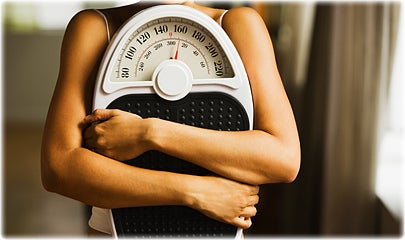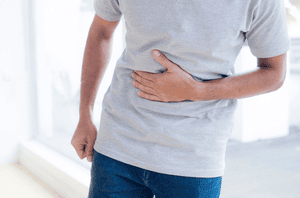
Do you ever find that the older you get, the harder it is to lose weight? You could be on to something because, as a woman, it can get a little harder to shed the pounds after a certain age... Yes, we're talking about menopause and weight loss.
It is a part of our life that we just can't avoid, whether you want to or not. We start to experience hot flashes, problems sleeping, and mood swings (to name a few) as our body adjusts to fluctuating hormones. One unwelcome menopausal symptom is weight gain. Knowing how to handle these changes will help us when the time come, so here is our complete guide to the menopause and weight loss.
What is Menopause?
Menopause is completely natural - it happens to us all as we age. It is just the term used to describe the hormonal changes that women go through around the time that we stop being able to reproduce.
These changes can bring about a challenging time for us women. As our hormones fluctuate it can cause uncertainty and physical symptoms:
Steady Weight Gain
Slower Metabolism
Changes Body Shape
Fat Accumulation Around Abdomen
Increased Body Fat Percentage
Difficulty Maintaining Normal Weight
Hot Flashes
Depression and Mood Swings
Problems Sleeping
Changes in your Skin and Hair
Although these symptoms aren't welcome they shouldn't cause us to feel worried or low. Kim Cattrell, actress and advocate for the Tune In To Menopause campaign, said: "What I would say, which I've said to myself and to girlfriends who've also experienced hot flashes, in particular, is that change is part of being human. We evolve and should not fear that change. You're not alone." In The New York Times Angelina Jolie said "I am now in menopause. I will not be able to have any more children, and I expect some physical changes. But I feel at ease with whatever will come, not because I am strong but because this is a part of life. It is nothing to be feared." The key is to stay in the know and educate yourself about the changes that are happening during menopause and how to work with them.

Why Are Menopause And Weight Loss Linked?
The first thing to remember is that menopause won't happen all at once. Instead, it happens in a few different stages:
Perimenopause Several years before menopause, the ovaries gradually make less estrogen leading to some early symptoms of menopause.
Menopause Around 12 months after your last menstrual period, your ovaries stop functioning leading to fluctuations in your hormones.
Postmenopause You may gain your energy back, but you could be at risk for other medical conditions, so keep up with regular check-ups.
Our hormones are fluctuating at each of these stages, bringing about different changes in our bodies. One of these changes is how we gain (and lose) weight. The hormones involved in this change is:
Estrogen We produce less estrogen during menopause. Studies have shown how estrogen receptors in the hypothalamus work as a master switch to control food intake, energy expenditure, and body fat distribution.
- TestosteroneThis hormone is responsible for building muscle. As you age, your testosterone levels decline, which results in fatigue, weight gain, and bone and muscle loss.
- ProgesteroneProgesterone levels also begin to decrease during menopause. While low levels of progesterone don't cause you to gain weight, it can result in water retention and bloating.
- InsulinInsulin helps to control blood sugar. During menopause our insulin resistance changes, which might mean our body begins to incorrectly convert calories into fat, leading to weight gain.
Cortisol Cortisol is produced when we are stressed, which can increase during menopause. It is normally balanced by estrogen, but as estrogen levels decrease we are unable to regulate cortisol in our body.
These hormonal changes might you feel a little discouraged. Can you really battle your hormones? Can you change the inevitable? Or are we are doomed to gain weight.

How Can We Lose Weight During Menopause?
Change can be hard to deal with! But when it comes to menopause and weight loss, you just need to know what you need to do to help counteract these changes and prevent this weight gain.
Here are some tips to weight loss after menopause:
Exercise Now our metabolism is a little slower, we should aim to be more active. 150 of moderate exercise with two days of strength training a week is advised. Strength training, like yoga or pilates, is important now our testosterone levels have lost some of our muscle mass for us!
- Healthy Diet"In general, you need 200 fewer calories a day to maintain your weight during your 50s," says Sheth, Academy of Nutrition and Dietetics Spokesperson. To make this easier, you could try: counting macros using a MyFitness Pal; filling up our low cal fruit and veg; and drinking enough water to stay hydrated and full!

Related Articles








